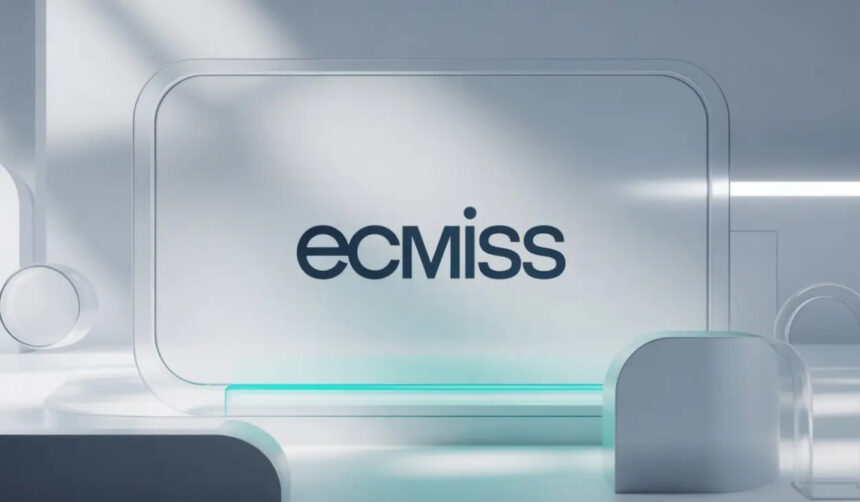In an era where information drives business decisions, managing data efficiently while ensuring its security has become a top priority for organizations worldwide. ECMISS is a robust solution that addresses these challenges by providing a comprehensive system for enterprise content management and information security. By integrating advanced technologies, enables organizations to streamline data workflows, maintain the integrity of sensitive information, and enhance overall operational efficiency. Unlike traditional methods, which often rely on fragmented systems for storage, security, and access control, offers a unified platform that simplifies these processes while reducing the risk of data breaches and errors.
The Core Features of ECMISS
ECMISS is designed to handle the complexities of modern data management. At its core, the system provides functionalities such as secure data storage, document management, workflow automation, and real-time monitoring of data access. The secure storage capabilities ensure that both structured and unstructured data are protected from unauthorized access, while document management features allow organizations to organize their files in a logical and accessible manner. Additionally, workflow automation within reduces manual interventions, allowing employees to focus on strategic tasks rather than repetitive administrative duties. Real-time monitoring provides administrators with the ability to track data usage patterns, detect anomalies, and enforce compliance policies effectively.
How ECMISS Enhances Data Security

Data security is a central aspect of ECMISS. The system employs multiple layers of security, including encryption, user authentication, and access control. Encryption ensures that sensitive information remains unreadable to unauthorized users, both during transmission and storage. User authentication protocols, such as multi-factor authentication, guarantee that only authorized personnel can access critical data. Furthermore, allows administrators to define granular access levels, ensuring that employees have access only to the information necessary for their roles. This layered security approach minimizes the risk of data breaches and protects organizations from potential regulatory violations, making a vital tool for maintaining business continuity.
ECMISS and Regulatory Compliance
One of the major advantages of ECMISS is its support for regulatory compliance. Businesses in sectors such as healthcare, finance, and government are required to adhere to strict data protection standards. facilitates compliance by providing features such as audit trails, secure record-keeping, and automated reporting. Audit trails allow organizations to track every action taken on a document or data file, providing accountability and transparency. Secure record-keeping ensures that historical data remains intact and tamper-proof, while automated reporting simplifies the process of generating compliance documentation for regulatory authorities. By integrating these functionalities, reduces the burden on organizations trying to meet complex regulatory requirements.
Streamlining Data Management Processes

Managing large volumes of data can be a complex and time-consuming task. ECMISS addresses this challenge by streamlining data management processes through automation and intelligent organization. The system categorizes and indexes data automatically, making it easier for employees to locate and retrieve information quickly. Workflow automation reduces the need for manual intervention in routine tasks, such as data entry, document approval, and information routing. By optimizing these processes, not only increases operational efficiency but also reduces the likelihood of errors, ensuring that data is accurate and up to date at all times.
Benefits of ECMISS for Businesses
Implementing ECMISS offers a multitude of benefits for businesses of all sizes. Firstly, it provides a centralized platform for data storage, which simplifies management and enhances data accessibility. Secondly, the security measures embedded in protect sensitive information from internal and external threats. Thirdly, the automation features reduce administrative workloads, allowing employees to focus on high-value tasks. Additionally, supports scalability, meaning that organizations can expand their data management capabilities as their operations grow. Finally, the system’s reporting and analytics tools provide valuable insights into data usage and workflow efficiency, helping organizations make informed decisions and improve overall performance.
ECMISS in Cloud and On-Premises Environments

ECMISS is versatile and can be deployed in both cloud and on-premises environments, depending on the specific needs of an organization. Cloud deployment offers the advantage of remote access, enabling employees to work from anywhere while maintaining data security. It also reduces the need for extensive IT infrastructure, making it a cost-effective solution for many businesses. On-premises deployment, on the other hand, provides organizations with full control over their data and infrastructure. Regardless of the deployment model, ensures that data is consistently protected, accessible, and organized, providing flexibility without compromising security or performance.
The Role of ECMISS in Business Continuity
Business continuity planning is critical in today’s unpredictable environment. ECMISS contributes to continuity by ensuring that critical data is always available and protected against loss. The system includes features such as automated backups, disaster recovery protocols, and redundancy mechanisms. In the event of a system failure, these features ensure that data can be restored quickly, minimizing operational disruption. By safeguarding information and supporting rapid recovery, enables organizations to maintain essential functions during crises and reinforces overall resilience.
ECMISS and Collaboration

Collaboration is a key factor in modern business operations, and ECMISS facilitates teamwork by providing secure data sharing and collaborative tools. Teams can access shared documents, track changes, and communicate within the platform, ensuring that all members have the most up-to-date information. Permissions and access controls ensure that sensitive information is shared only with authorized personnel. By integrating collaboration features with security and management capabilities, promotes efficient teamwork without compromising data integrity or confidentiality.
Future of Data Management with ECMISS
As organizations continue to generate larger volumes of data, the demand for advanced data management solutions will grow. ECMISS represents the future of enterprise data management by combining security, efficiency, and automation in a single platform. Its ability to integrate with emerging technologies, such as artificial intelligence and machine learning, will further enhance data organization, predictive analytics, and decision-making capabilities. By adopting, organizations position themselves to handle future data challenges effectively, ensuring that information remains a strategic asset rather than a liability.
Frequently Asked Questions
1. What is ECMISS?
- ECMIS is an enterprise content management and information security system designed to streamline data management, enhance security, and improve operational efficiency.
2. How does ECMISS improve data security?
- ECMISS improves security through encryption, user authentication, and access control, ensuring sensitive information remains protected from unauthorized access.
3. Can ECMISS help with regulatory compliance?
- Yes, ECMISS supports compliance with industry regulations by providing audit trails, secure record-keeping, and automated reporting features.
4. Is ECMISS suitable for cloud deployment?
- ECMISS can be deployed in both cloud and on-premises environments, offering flexibility while maintaining security and accessibility.
5. How does ECMISS enhance collaboration within organizations?
- ECMISS allows secure data sharing, document tracking, and collaborative tools, enabling teams to work efficiently without compromising information security.
























